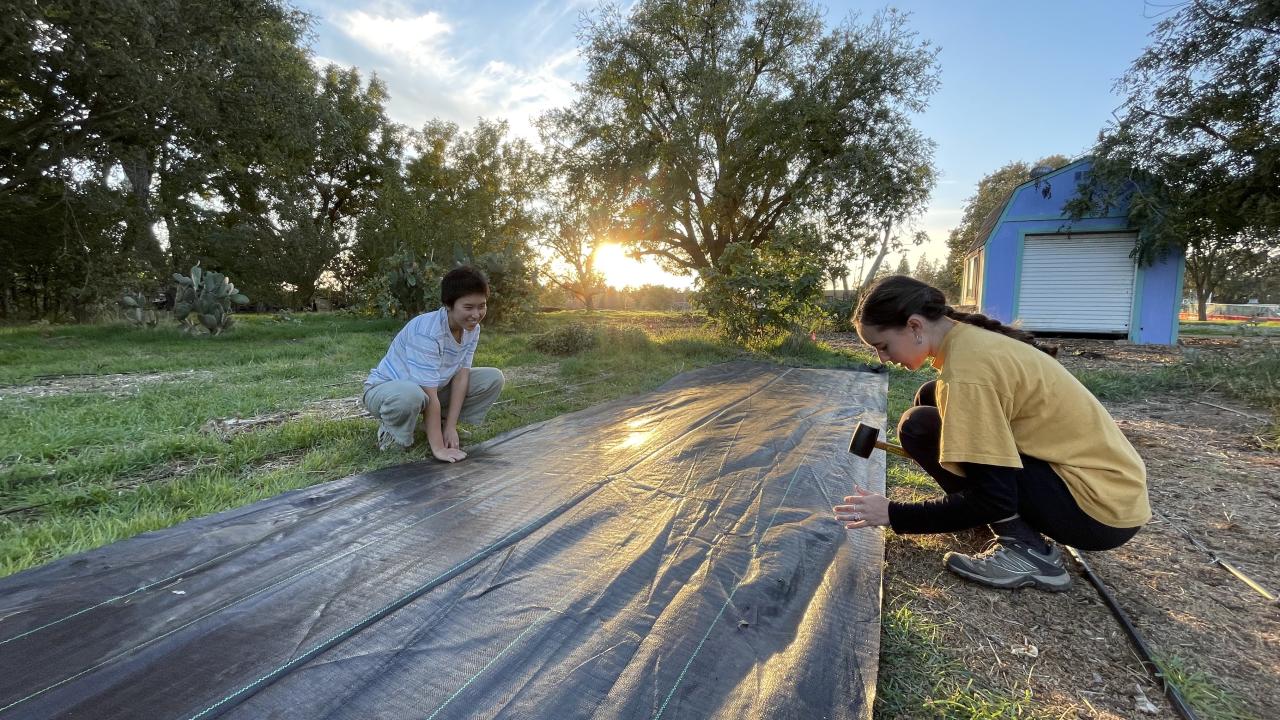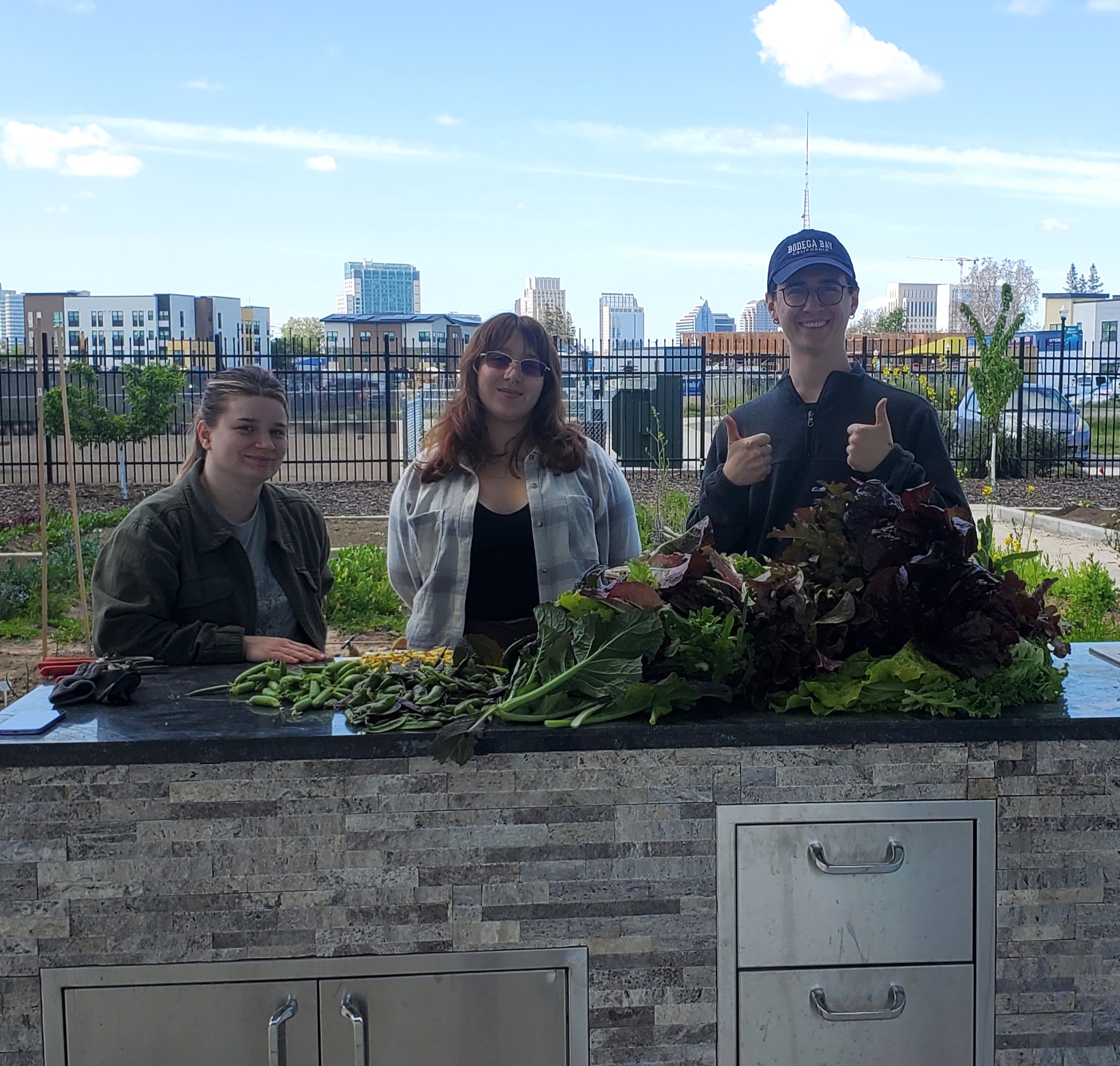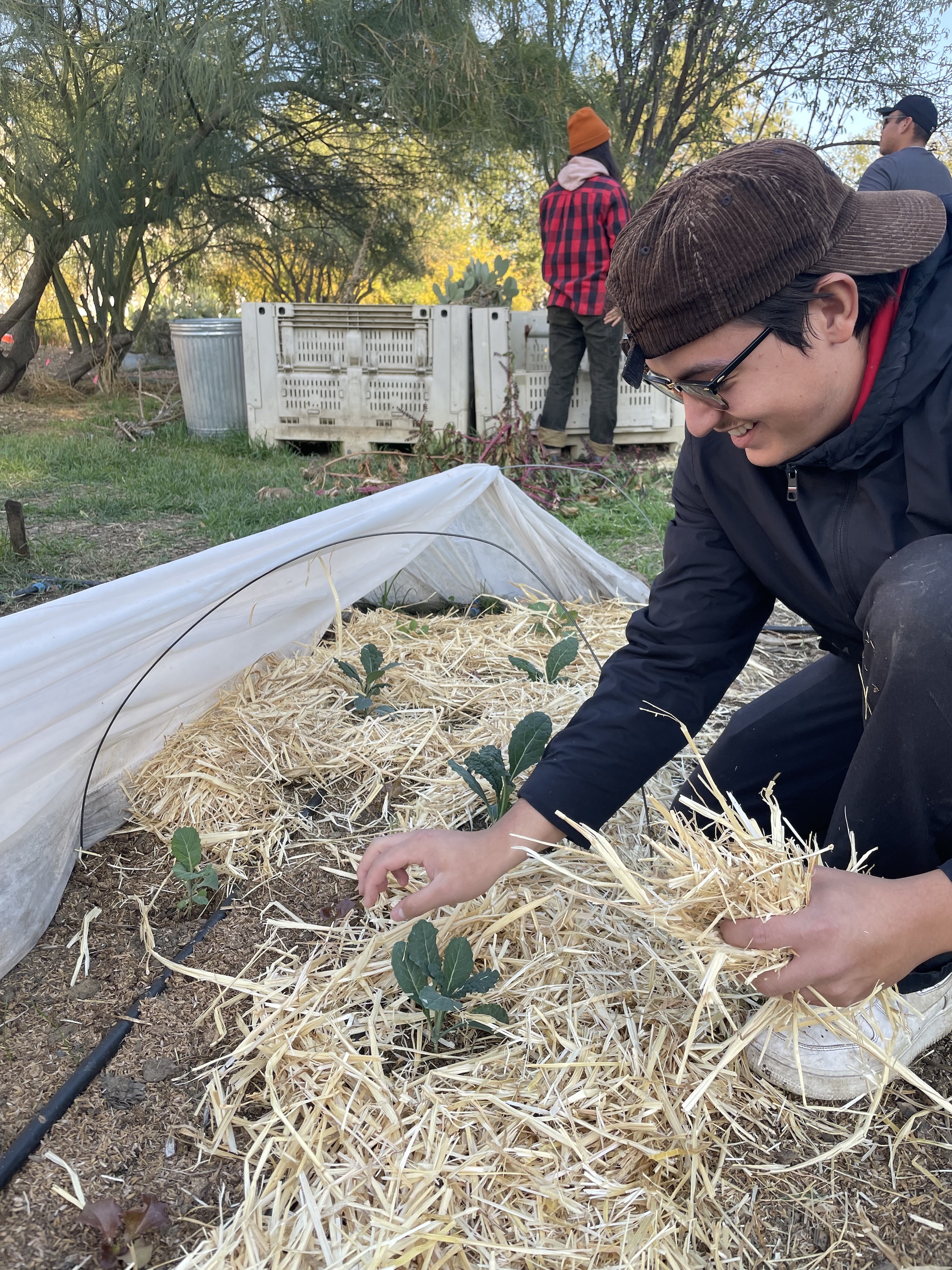
Grants to Local Nonprofits Strengthen Community Impact
Thanks to a novel approach to community partnerships, the Sacramento Valley College Corps (SVCC) has improved internship experiences for UC Davis students while making a lasting impact on the Sacramento nonprofit community.
A state-funded collaboration between UC Davis, Sacramento State, Sacramento City College, and Woodland Community College, the SVCC provides undergraduate students with hands-on learning opportunities at community organizations that tackle K-12 education, climate change or food insecurity. Students receive a $10,000 stipend and complete 450 hours of community service during the school year.
In spring 2023, SVCC awarded more than $66,000 in grants to 12 community partners, a significant investment in local organizations that often struggle with limited resources. These grants will be used to address critical needs such as volunteer engagement and training, thereby empowering small nonprofits to take on new challenges and expand their programming. The ultimate goal is to create a more enriching experience for SVCC interns and to compensate community partners for their time, expertise and investment in students, said Moira Delgado, community partner liaison for the UC Davis Office of Public Scholarship and Engagement.
Empowering nonprofits and students
The impact of the SVCC grants on community host sites and student interns has been notable. For example, Alchemist Community Development Corporation in Sacramento, a nonprofit focused on connecting people to food, land, and opportunities, has purchased new gardening and safety supplies in order to offer additional opportunities to student fellows. The grant has also funded valuable training and leadership development for staff members, developing their skills in fostering growth and mentoring for students and volunteers, said Joe Robustelli, neighborhood empowerment manager for Alchemist CDC.
“We are a very small nonprofit without a lot of resources,” Robustelli said. “This grant allowed us to make more opportunities available to students. It may not seem like a lot, but to us it’s a lot of money.”
Robustelli emphasized the significance of the university directly providing financial support to community organizations through the SVCC program. “Sometimes, for small amounts like this, it’s not worth the paperwork involved. But this was a really easy process. And the support really helps when we’re trying to justify to our board why we want to continue with SVCC.”

Another nonprofit, Solar Community Housing Association in Davis, will use their grant to train staff in volunteer management and to develop skill-based resources for student fellows. “Working with volunteers is rare for us, so it has been a fun and challenging experience figuring out how to create a meaningful and impactful year-long experience for students,” said Kaitlin Oki (B.S., sustainable food systems, ’17), land stewardship coordinator for the nonprofit.
Solar Community Housing Association provides cooperative housing for low-income people in Davis. The SVCC fellows have helped the nonprofit deepen relationships with their residents, and provide more support for the self-governing housing, Oki said. “It’s become harder and harder for our residents to provide labor and contributions because the economic pressures they face are getting more intense every year. The consistency of having the College Corps fellows go out and meet residents and attend workshops helped us reach critical mass to get people really energized to come out again and again.”

Building strong partnerships
By compensating community partners, SVCC reinforces the principle of equitable collaboration, ensuring that the benefits of the program extend beyond the students themselves and positively impact the organizations that dedicate their time and energy to nurturing the next generation of community leaders
“This model sets a promising precedent for universities and communities nationwide, fostering effective partnerships for the greater good,” Stacey Muse, director of engagement for the Office of Public Scholarship and Engagement.
The community grants initiative also reflects the broader commitment by UC Davis to cultivate mutually beneficial relationships that empower community partners and recognize the value they bring to student learning beyond the classroom.
To further strengthen this commitment, Muse is leading the UC Davis Community Engagement Collaborative in a year-long effort to enhance how the university compensates community partners. The collaborative is a community of practice open to any faculty and staff who wish to support, improve and grow community-engaged work. The group aims to establish fair and sustainable practices that nurture long-term partnerships between the university and the community.
“It is crucial to acknowledge and compensate community partners for their time, expertise and investment in students,” Muse said.
────
Learn More About Sacramento Valley College Corps
- UC Davis is proud to be among the 45 campuses selected for the inaugural #CaliforniansForAll College Corps program. Learn about the initiative.
- UC Davis, along with Sacramento State and Sacramento City College, form the regional Sacramento Valley College Corps, or SVCC.
- A key element of this program are local community-based organizations and government agencies who host student fellows during the academic year. Students can learn more and apply here.
